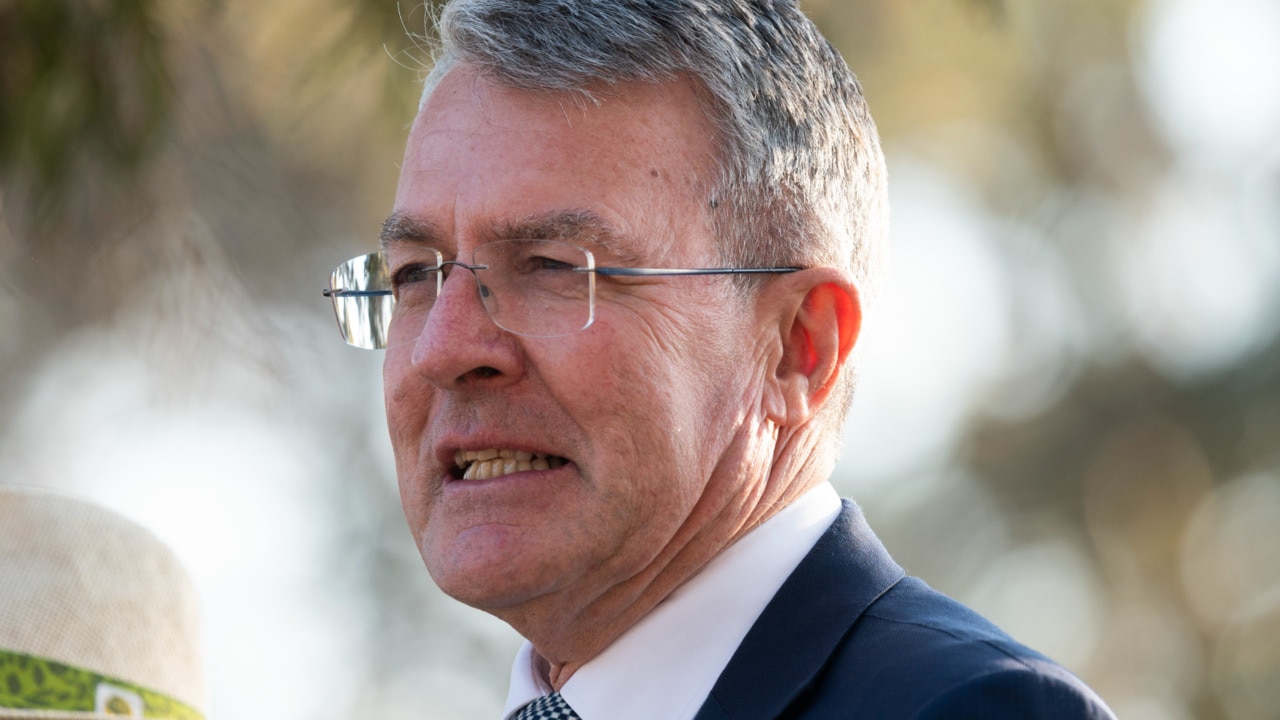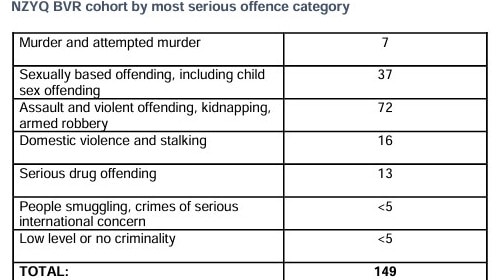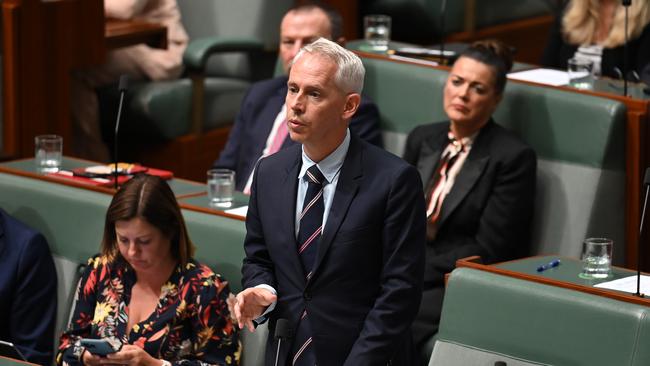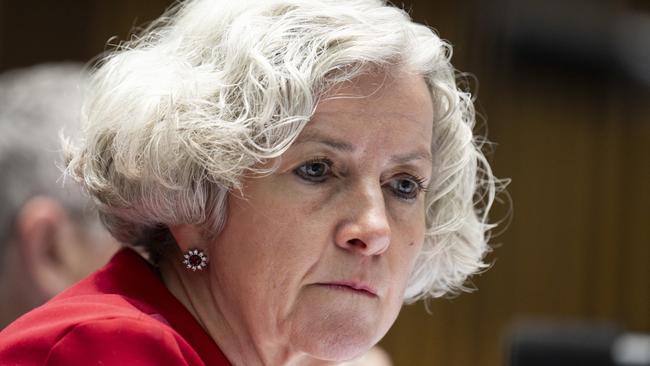Questions rage as number of criminals released following landmark NZYQ ruling revealed
Fresh details about the number of non-citizen criminals released from detention following a shock high court ruling have been revealed.

Leaders
Don't miss out on the headlines from Leaders. Followed categories will be added to My News.
The Albanese government is under fire after it was revealed dozens of criminals released from immigration detention after last year’s landmark NZYQ High Court ruling are not required to wear electronic ankle monitors.
Among the 149 people released into the community since the ruling are seven murderers, 37 sex offenders and 72 violent criminals.
Documents tabled on Monday morning in Senate estimates revealed the 149 detainees released also include 16 domestic violence offenders, 13 drug offenders, and five people convicted of people smuggling or other crimes of international significance.
Fewer than five with “low level or no criminality” were also released.
Six of those who have been released have been arrested and charged for breaching their visa conditions. Another 18 have been charged by state and territory police.
But 36 of the detainees have been told they are not required to be fitted with an electronic ankle monitoring device.

The remaining 113 non-citizens are required to wear an ankle monitor.
Last November’s ruling that indefinite detention was unlawful caught the government by surprise, sparking a frenzied rush to legislate new laws to tighten visa conditions and enact preventive detention laws to re-detain non-citizens.
Despite 18 former detainees having been charged by state authorities since their release, government officials confirmed on Monday that no preventive detention applications had been made, putting pressure on Prime Minister Anthony Albanese to answer why.
Mr Albanese cited the “very high legal threshold” that must be met in order for a court to agree to such an application, and there was “no point” in trying if the government knew it would fail.
“What we want to make sure is that this is right, there’s no point putting in an application that is not successful,” Mr Albanese said.
“We are taking advice and we will take action for everyone who the advice suggests can be successfully detained.”
Question Time on Monday was dominated by the matter, with opposition immigration spokesman Dan Tehan putting seven questions to the immigration minister.
The first question he asked Andrew Giles was whether the government “can confirm that none of these individuals (without ankle monitors) pose a threat to the community?”
Mr Giles in response told parliament that a body of law enforcement officers had made the assessment the 36 did not pose a risk to the community.
“I am pleased the community protection board is up and has been providing appropriate advice on managing this cohort,” he said.
Mr Tehan was not impressed, going back six more times for questions about the group.
Mr Giles held firm, responding to Mr Tehan’s final question: “I say the release of these individuals was required by reason of the High Court”.
“A decision that would be a decision any government would have to comply with. I say again that the management of everyone in that cohort has been subject to the expert advice of the men and women of the community protection board,” Mr Giles said.

Australian Border Force Commissioner Michael Outram later confirmed the board set up by the government to advise on whether former immigration detainees should be re-detained had met seven times since December.
“There has been much public commentary regarding the NZYQ High Court decision and its implications, but outside of the public discourse our ABF officers and our partners have worked tirelessly and with great speed and resilience to protect the Australian community,” he told the committee.
It was revealed during senate estimates that 60 of the released detainees reside in NSW. Another 40 live in Victoria, while Queensland and Western Australia have 20 each.
Fewer than 10 detainees reside in the ACT or South Australia, while none live in Tasmania.
Just over $13m has been spent on monitoring as well as helping with housing and other costs related to the detainee’s release.
Home Affairs secretary Stephanie Foster told senators the response was “ongoing”.
“With the Department managing current litigation and preparing for future cases, continuing to engage internationally on removals and working with the states and territories to further embed our community safety arrangements,” she said.
“There has been much media interest in individual cases and, as you would be aware, the Department will need to avoid disclosing information that could identify any individual person.”
Officials confirmed the department was looking at the visa-granting process to prevent people like those captured by the High Court decision from entering the country.

Australia approached six countries – Bangladesh, Saudi Arabia, United Kingdom, New Zealand, Canada, and the United States – between August and September 2023 regarding the deportation of the Rohingya refugee known as NZYQ.
Home Affairs could not provide any further information about the ongoing discussions other than engagement with the US was “ongoing”.
“It is not appropriate to disclose information that could cause damage to Australia’s international relations by revealing private discussions with foreign states,” the documents said.
Meanwhile, Opposition home affairs spokesman James Paterson grilled Ms Foster about why the documents tabled were not provided prior to the hearing, as requested.
Ms Foster said it was “largely a question of resourcing” and she had not wanted to divert her staff from Senate estimates preparation.
Copies of Senator Paterson’s correspondence were also provided to Mr Giles’ office, he said.
“It certainly implies that there was political involvement in the responsive political stuff being copied on the response,” he said.
Ms Foster said it had been “an error”.
Officials also confirmed there are people due to be released from prison who would have gone into immigration detention if it weren’t for the NZYQ decision.
Home Affairs staff told senate estimates that while no one captured by the High Court’s ruling had been released from jail, there were some offenders currently behind bars who were due to be released.
Home Affairs general counsel Clare Sharp said the new precedent had created a threshold that meant a person’s removal from Australia had to be locked in before they were detained in immigration.
Originally published as Questions rage as number of criminals released following landmark NZYQ ruling revealed


